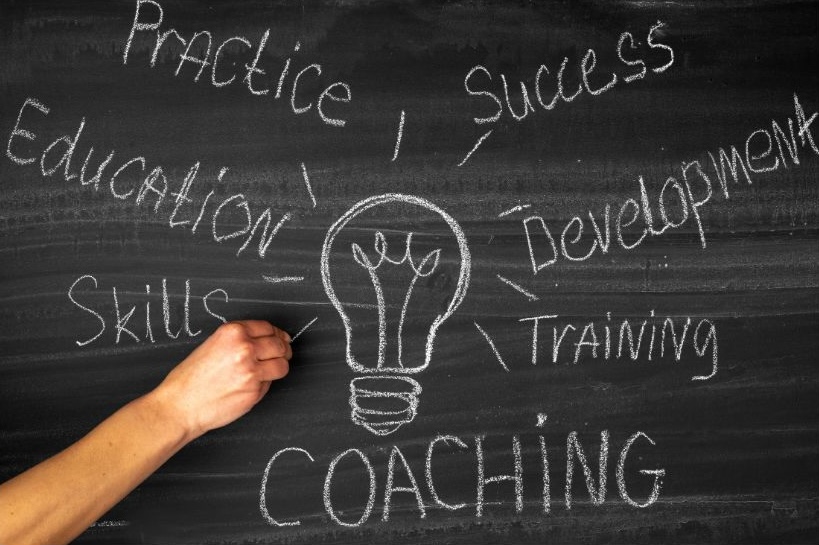In the real estate industry, the terms “training” and “coaching” are often used interchangeably, but they serve different purposes and have unique impacts on agent success. Both are crucial for the growth and development of real estate agents, yet understanding the difference between the two and knowing when to apply each can significantly influence an agent’s productivity and career trajectory.
This blog will explore the distinct roles of training and coaching, their benefits, and how to determine what your agents need to thrive in a competitive market.
1. Understanding Training: The Foundation of Knowledge
Training in real estate typically refers to the structured process of teaching agents the technical skills, industry knowledge, and systems necessary to perform their roles effectively. It often involves formal instruction, workshops, seminars, and e-learning courses that cover a wide range of topics.
a. Key Components of Training
- Technical Skills Development: This includes learning how to use CRM systems, marketing platforms, MLS (Multiple Listing Service), and other essential software.
- Compliance and Legal Knowledge: Training often covers legal aspects of real estate transactions, such as contracts, disclosures, and fair housing laws.
- Sales Techniques: Includes training on prospecting, negotiation, closing techniques, and understanding market trends.
- Market and Product Knowledge: Agents need to understand local market conditions, property types, pricing strategies, and inventory.
b. Benefits of Training
- Consistency: Training provides a standardized approach that ensures all agents receive the same foundational knowledge and skills.
- Efficiency: Well-designed training programs can accelerate the learning curve for new agents, making them productive faster.
- Compliance: Regular training on legal and ethical standards helps agents stay compliant and reduces the risk of costly mistakes.
c. When to Focus on Training
Training is most effective when an agent is new to the industry or transitioning into a new role. It’s also vital when there are new tools, technologies, or regulatory changes that agents need to learn. For example:
- New Hires: Onboarding programs should focus heavily on training to build foundational knowledge.
- New Technologies: When implementing new CRM or marketing tools, comprehensive training is essential.
- Market Changes: When there are significant shifts in the market or new regulations, training helps keep agents up-to-date.

2. Understanding Coaching: The Path to Personal and Professional Growth
Coaching, on the other hand, is a more personalized, ongoing process that focuses on helping agents improve their performance by enhancing their mindset, behaviors, and strategies. Coaching is less about transferring knowledge and more about guiding agents to discover solutions, overcome obstacles, and achieve their goals.
a. Key Components of Coaching
- Goal Setting and Accountability: Coaching helps agents set realistic, measurable goals and holds them accountable for achieving those goals.
- Skill Refinement: Focuses on improving specific skills, such as communication, negotiation, and relationship-building.
- Mindset and Motivation: Addresses psychological barriers, such as fear of rejection or lack of confidence, that may be hindering an agent’s performance.
- Problem-Solving: Coaches help agents analyze challenges and develop their own strategies for overcoming them.
b. Benefits of Coaching
- Personalized Development: Coaching is tailored to the individual needs and strengths of each agent, making it highly effective.
- Behavioral Change: Coaching helps agents develop new habits and behaviors that drive long-term success.
- Increased Engagement: Regular coaching can keep agents motivated, engaged, and aligned with their personal and professional goals.
c. When to Focus on Coaching
Coaching is most effective for agents who already have a solid foundation of knowledge and are looking to refine their skills, enhance their performance, or overcome specific challenges. Situations where coaching is particularly valuable include:
- Performance Plateaus: Agents who are not progressing or have reached a performance plateau can benefit from coaching to break through barriers.
- Top Performers Seeking Growth: Even high-performing agents can benefit from coaching to reach the next level or explore new niches.
- Behavioral Challenges: Agents struggling with confidence, time management, or client relationships can benefit from targeted coaching.

3. Training vs. Coaching: Key Differences
Understanding the differences between training and coaching is crucial for real estate team leaders who want to provide the right support to their agents. Here are some key differences:
| Aspect | Training | Coaching |
| Object | Impart knowledge and skills | Develop mindset, behaviors, and strategies |
| Approach | Structured, one-size-fits-all | Personalized, adaptive |
| Duration | Fixed, short-term | Ongoing, long-term |
| Focus | “How to” knowledge | “Why” and “How to improve” |
| Delivery | Workshops, seminars, e-learning | One-on-one sessions, group coaching, feedback |
| Outcome | Competence in tasks and systems | Improved performance, self-awareness, growth |

4. How to Determine What Your Agents Need
To effectively develop your team, it’s essential to assess each agent’s needs and determine whether training, coaching, or a combination of both is the right approach.
a. Assess Skill Levels and Knowledge Gaps
- Identify Knowledge Gaps: Conduct assessments, quizzes, or surveys to identify areas where agents lack essential knowledge or skills. If knowledge gaps are evident, training is the appropriate solution.
- Analyze Performance Metrics: Use performance metrics such as lead conversion rates, listing acquisition, and sales volume to identify agents who may need more targeted coaching.
b. Understand Individual Goals and Motivations
- Regular Check-Ins: Hold regular one-on-one meetings with agents to discuss their goals, challenges, and aspirations. This will help you understand whether they need more training or personalized coaching.
- Personality and Behavioral Assessments: Tools like DISC or Myers-Briggs can provide insights into an agent’s personality traits, strengths, and areas for development, helping you tailor your approach.
c. Consider the Stage of Their Career
- New Agents: Focus more on training to build foundational skills and knowledge.
- Mid-Level Agents: Balance training and coaching to refine skills and improve specific areas of performance.
- Experienced Agents: Emphasize coaching to help them achieve their full potential and explore new opportunities for growth.

5. Integrating Training and Coaching for Maximum Impact
A well-rounded development program for real estate agents should integrate both training and coaching to ensure comprehensive growth. Here’s how to effectively combine both:
a. Create a Structured Onboarding Program
For new agents, create a structured onboarding program that combines initial training with introductory coaching. This approach provides the knowledge they need to get started and the support they need to apply that knowledge in real-world situations.
b. Develop Continuous Learning Programs
Offer ongoing training sessions to keep agents updated on market trends, new technologies, and sales techniques. Complement this with regular coaching sessions to help agents apply what they learn and continuously improve their skills.
c. Offer Group Coaching and Peer Learning Opportunities
Group coaching sessions can foster collaboration, knowledge-sharing, and peer learning among agents. This can be especially effective for addressing common challenges and reinforcing training content.
d. Leverage Data-Driven Insights for Coaching
Use data analytics to identify areas where agents are struggling or excelling. These insights can inform personalized coaching strategies that target specific behaviors or skills.
e. Set Clear Goals and Measure Progress
Whether it’s through training or coaching, always set clear goals and measure progress. Use performance metrics, feedback, and self-assessments to gauge effectiveness and make necessary adjustments.
6. Best Practices for Implementing Training and Coaching Programs
To get the most out of training and coaching programs, consider these best practices:
a. Customize Programs to Fit Individual Needs
Avoid a one-size-fits-all approach. Tailor training and coaching programs to meet the unique needs, skills, and goals of each agent.
b. Leverage Technology and Online Platforms
Use technology to provide flexible training options such as webinars, e-learning modules, and virtual coaching sessions. This ensures that agents can access training and coaching at their convenience.
c. Encourage a Culture of Continuous Improvement
Promote a culture where continuous learning and self-improvement are valued. Encourage agents to seek feedback, embrace challenges, and view setbacks as learning opportunities.
d. Provide Support and Resources
Ensure that agents have access to the necessary resources, such as training materials, coaching guides, and development tools, to support their growth.
e. Evaluate and Adapt Programs Regularly
Regularly evaluate the effectiveness of your training and coaching programs and make adjustments based on agent feedback and performance outcomes.

Conclusion
Training and coaching are not mutually exclusive but rather complementary approaches that together provide a comprehensive strategy for developing successful real estate agents. By understanding the differences between training and coaching and knowing when to apply each, real estate team leaders can create a robust development program that addresses both the knowledge and behavioral aspects of success. Ultimately, this balanced approach will not only elevate individual agent performance but also drive overall team success and business growth.
